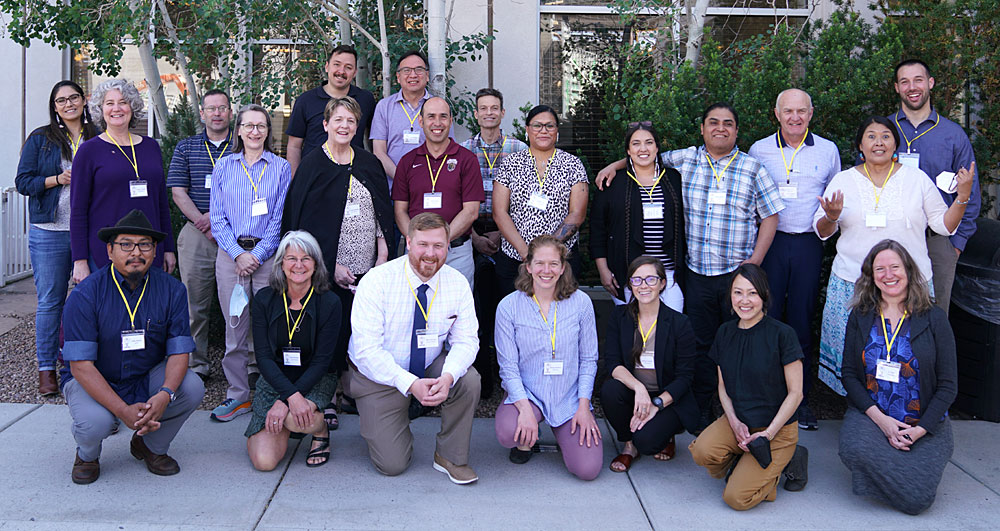
The National Science Foundation recently awarded $10 million to a six-state collaborative working to boost the underrepresentation of Alaska Native and American Indian (AI/AN) students in STEM disciplines and the workforce.
The grant award funds Cultivating Indigenous Research Communities for Leadership in Education, or the CIRCLES Alliance. The alliance is led by principal investigator Aaron Thomas, Diversity and Inclusion lead on the current RII Track-1 CREWS project, University of Montana (UM) chemistry professor, and director of UM Indigenous Research and STEM Education. Partners include universities and research institutions in Idaho, Montana, New Mexico, North Dakota, South Dakota and Wyoming.
UM will receive $1.8 million of the total award to build a network for developing and disseminating science, technology, engineering and math educational resources, as well as implementing longitudinal programming, mentorship and teacher preparation in support of AI/AN student success.
The CIRCLES Alliance launched in 2020 with support from NSF’s EPSCoR and INCLUDES programs. (EPSCoR: Established Program to Stimulate Competitive Research. INCLUDES: Inclusion across the Nation of Communities of Learners of Underrepresented Discoverers in Engineering and Science.)
With this new funding, the alliance is poised to serve students and educators at the kindergarten through undergraduate levels across the Mountain West.
Ultimately, through research and collaboration with tribal communities, the CIRCLES Alliance aims to inform educational institutions and the NSF in Native cultural understanding and humility and to shift approaches toward AI/AN education.
“The CIRCLES Alliance’s goal is to encourage AI/AN students to identify academically and culturally with being a Native scientist, technician, engineer or mathematician,” Thomas said. “The hope is that more of these students will enter and persist in STEM-related fields and the workforce.”
To this end, the Alliance’s prior work has included partnering with tribal communities to better understand how STEM and Indigenous science are valued within those communities, as well as gain Native perspectives on addressing the challenge of better serving AI/AN students in public education institutions.
UM is home to the Indigenous Research and STEM Education Program, which is dedicated to advancement of Native American, Alaskan Native, Native Hawaiian and First Nation students in STEM academic disciplines and professions.